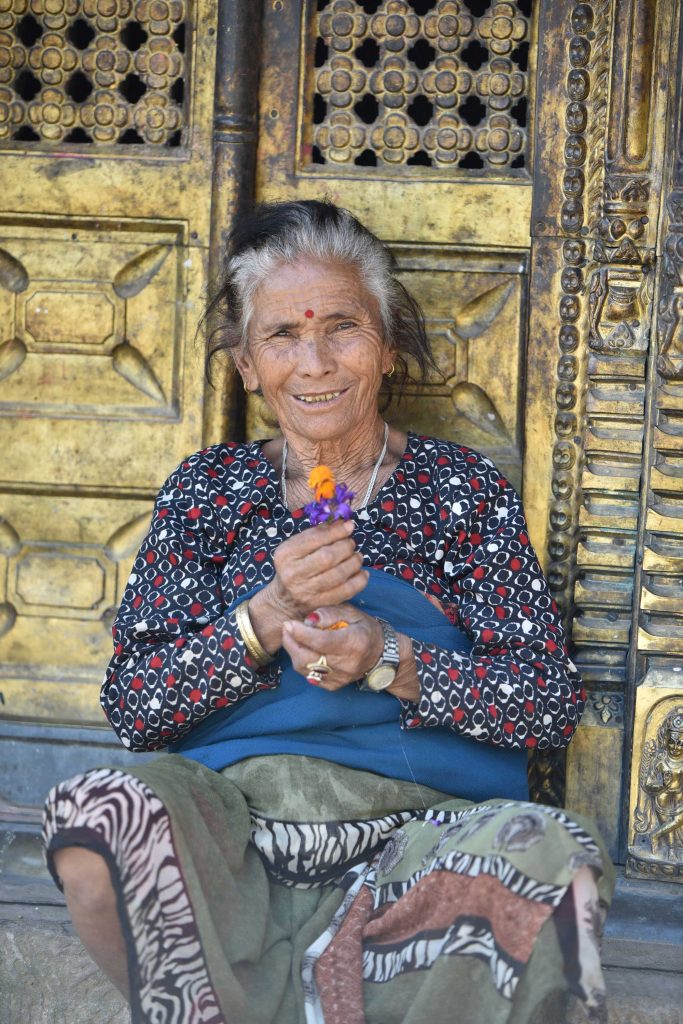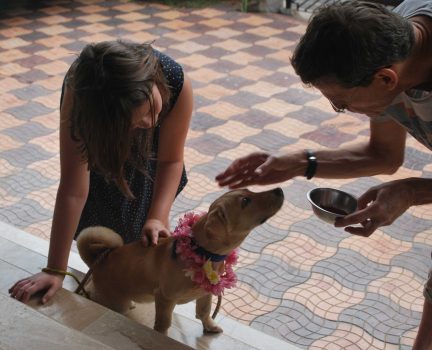Eknath Easwaran answers questions about how to be kind with others without compromising on your own emotions and happiness
I find it really hard not to lash out if someone attacks me. Anything else feels weak.
 Strength is often equated with the capacity to attack, but to me it means the internal toughness to take whatever life deals out without losing your humanity. It is those who never stoop to retaliation, never demand an eye for an eye, who are truly strong. They have the toughness to be tender, even sweet, while resisting violence with all their heart.
Strength is often equated with the capacity to attack, but to me it means the internal toughness to take whatever life deals out without losing your humanity. It is those who never stoop to retaliation, never demand an eye for an eye, who are truly strong. They have the toughness to be tender, even sweet, while resisting violence with all their heart.
By contrast, those who are ready to strike back at the slightest provocation are not strong but fragile. They may espouse a higher view of human nature, but almost anything can break them and make them lash back at those they oppose.
Indulging in anger is pointing a poison-tipped arrow inward, aimed straight at ourselves. It taints our thinking, poisons our feelings and turns our relationships adversarial. If we continue to think resentful thoughts, mistrust spreads in the consciousness like some toxic underground chemical until we have a permanent disposition for suspicion.
When anger pollutes our internal environment to this extent, we don’t need particular events to trigger suspicion. It has become an automatic response, draining us of energy like an insidious hidden leak. Our nervous system and vital organs react angrily on their own, without any connivance from the mind. The long-term effects can be disastrous: heart disease, stroke, extreme emotional stress, perhaps even lower resistance to disease and impaired capacity to heal.
When someone is being sarcastic or cruel to you, the natural response is to retaliate. If you want to be unshakable, you have to train your mind in patience and endurance, the most gruelling training that life offers. Life shows no mercy to those who lack this inner strength. Every virtue requires the toughness never to retreat in the face of challenge.
I have the opposite problem: I tend to back off even if someone is taking advantage of me.
Putting others first does not mean saying yes to everyone. When you allow people to exploit you, you aren’t just hurting yourself; you are helping the exploiter to hurt himself as well. To connive with somebody who is not living up to his responsibilities not only doesn’t help the situation; it doesn’t help that person either. Seeing the Self in those around us means supporting them to do better – not through words, but through unvarying respect and personal example. It is this unwavering focus on the Self in others that helps them realise its presence in themselves – and in us and others as well.
The more insensitive the other person is, the more reason for you to alert your mind to be calm and compassionate – and, if necessary, to face opposition firmly but tenderly. We aren’t helping inconsiderate people when we give in to their demands or let them walk all over us. It only feeds the habit of rudeness to let them have their way.
It requires enormous judgement, and bravery too, to oppose non-violently people we love. We can lovingly wear them down with our patience, and when we see signs of regret and reconciliation, we make friends again and completely forget the barrier that stood between us.
Love often shows itself in the inward toughness that is required to say no to an attitude or desire that we think will bring harm. Parents have to do this often,for children who grow up without hearing a ‘no’ from their parents will be terribly brittle when they have to take, no from life itself – and, worse, they will have a hard time saying no to themselves. But loving opposition, whether to children or to adults you live or work with, has to be done tenderly and without any anger or condescension.
Otherwise you are likely only to be adding more self-will to the flames. This is a difficult art. Go slowly, and remember that it is always better not to act in the heat of the moment. Whenever time allows, instead of responding immediately to an unwise demand, take a mantram walk first, meditate, and then speak when you can do so with kindness and patience. Remember, too, that the very best way to change someone is to begin with your own example.
